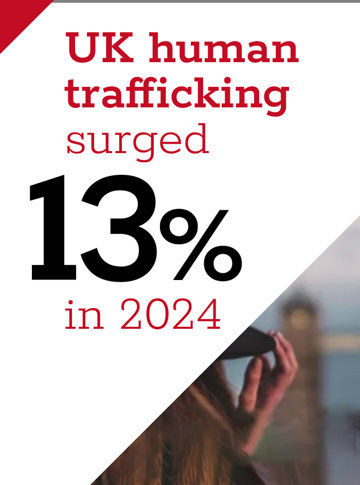“Erotic UK escorts are waiting for you. Whatever you desire, we have it. Complete discretion and confidentiality. Fulfill your fantasies now.” —Vivastreet website
Just type in your postal code, hit enter and choose from hundreds of sex slaves.
They’re called “pimping websites,” online advertising and sales schemes that, in the words of a Scottish parliamentary study on modern commercial and sexual exploitation, has “turbocharged the sex trafficking trade.”
Digital pimping isn’t new. The model thrived under Village Voice Media’s Backpage.com, a now-defunct virtual hub for child sex trafficking. Operating in nearly 100 countries and valued at more than half a billion dollars, it accounted for 73 percent of all child trafficking reports according to the National Center for Missing and Exploited Children.
“The online world has massively facilitated the sexual exploitation of women.”
In 2018, authorities shut down Backpage and arrested its executives and enablers, who were ultimately prosecuted and imprisoned—all of them, that is, except two: Backpage co-founder James Larkin, who shot himself shortly before trial, and Tony Ortega, Backpage’s in-house apologist. Ortega saturated pages with propaganda defending his cronies, deflecting criticism from human rights advocates and brushing off Backpage’s child sex trafficking activities—all before the universal cries for justice drowned him out.
But Backpage’s fate apparently hasn’t deterred the next generation of cyber slavery for profit.
Last year, the UK’s human trafficking statistics reached 19,125, a 13 percent increase over 2023, with experts warning the real figure is even higher—far higher.

“Adult service websites, where you can go online, type in your postcode and find hundreds of women for sale, are a hotbed for trafficking,” said Independent Anti-Slavery Commissioner Eleanor Lyons. “At a bare minimum, they should be far more heavily regulated.”
Lyons pointed out the blazing red flags to look out for: identical phone numbers being used for different women, or the same women being advertised in multiple listings at different addresses—examples of telltale signs that the women listed are being controlled.
The days of “ladies of the night” soliciting men on the street while their pimps monitored from the shadows are long gone. The internet, Lyons warns, has shifted exploitation “behind closed doors,” making victims harder to reach.
“I find it shocking that there are websites where women are openly being advertised and they are so unregulated,” Lyons said. “The online world has massively facilitated the sexual exploitation of women.”
This month, Lyons’ office will interview women who say they have been trafficked into sex work and advertised on adult services sites.
One such website under scrutiny is Vivastreet, a Craigslist-like platform that publishes classified ads for everything, including sex.
Vivastreet insists it has done nothing wrong: “We deploy a range of measures to detect, report and remove potentially exploitative content, including requiring all adult category advertisers to undergo age and ID verification,” a spokesperson for the site said.
But Vivastreet’s protestations sound eerily similar to Ortega’s defense of his Backpage pals: “We’ve spent millions of dollars putting in place strict policies and monitoring services to make sure that it is only adults finding each other through Backpage.com’s adult pages.”
The Senate Permanent Subcommittee on Investigations conclusively exposed Ortega’s pleas of innocence as “a fiction.”
Will Vivastreet’s denials also collapse under scrutiny?
As Eleanor Lyons’ commission does its work, we can only hope that the UK’s digital slave market finally faces the Backpage-level reckoning it deserves.






















